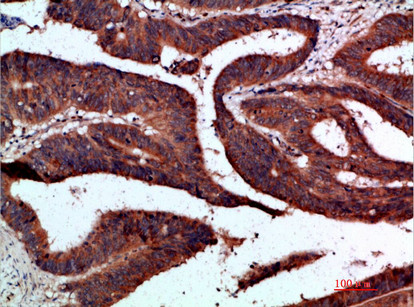| Post Translational Modifications | Thr-177 phosphorylation and Tyr-24 dephosphorylation promotes kinase activity. |
| Function | Serine/threonine-protein kinase involved in the control of the cell cycle and differentiation.promotes G1/S transition. Phosphorylates pRB/RB1 and NPM1. Interacts with D-type G1 cyclins during interphase at G1 to form a pRB/RB1 kinase and controls the entrance into the cell cycle. Involved in initiation and maintenance of cell cycle exit during cell differentiation.prevents cell proliferation and negatively regulates cell differentiation, but is required for the proliferation of specific cell types (e.g. erythroid and hematopoietic cells). Essential for cell proliferation within the dentate gyrus of the hippocampus and the subventricular zone of the lateral ventricles. Required during thymocyte development. Promotes the production of newborn neurons, probably by modulating G1 length. Promotes, at least in astrocytes, changes in patterns of gene expression, changes in the actin cytoskeleton including loss of stress fibers, and enhanced motility during cell differentiation. Prevents myeloid differentiation by interfering with RUNX1 and reducing its transcription transactivation activity, but promotes proliferation of normal myeloid progenitors. Delays senescence. Promotes the proliferation of beta-cells in pancreatic islets of Langerhans. May play a role in the centrosome organization during the cell cycle phases. |
| Protein Name | Cyclin-Dependent Kinase 6Cell Division Protein Kinase 6Serine/Threonine-Protein Kinase Plstire |
| Database Links | Reactome: R-HSA-2559580Reactome: R-HSA-2559582Reactome: R-HSA-2559585Reactome: R-HSA-69231Reactome: R-HSA-8934593Reactome: R-HSA-9630794Reactome: R-HSA-9632700Reactome: R-HSA-9661069Reactome: R-HSA-9754119 |
| Cellular Localisation | CytoplasmNucleusCell ProjectionRuffleCytoskeletonMicrotubule Organizing CenterCentrosomeLocalized To The Ruffling Edge Of Spreading FibroblastsKinase Activity Only In NucleusLocalized To The Cytosol Of Neurons And Showed Prominent Staining Around Either Side Of The NucleusPresent In The Cytosol And In The Nucleus In Interphase Cells And At The Centrosome During Mitosis From Prophase To Telophase |
| Alternative Antibody Names | Anti-Cyclin-Dependent Kinase 6 antibodyAnti-Cell Division Protein Kinase 6 antibodyAnti-Serine/Threonine-Protein Kinase Plstire antibodyAnti-CDK6 antibodyAnti-CDKN6 antibody |
Information sourced from Uniprot.org











